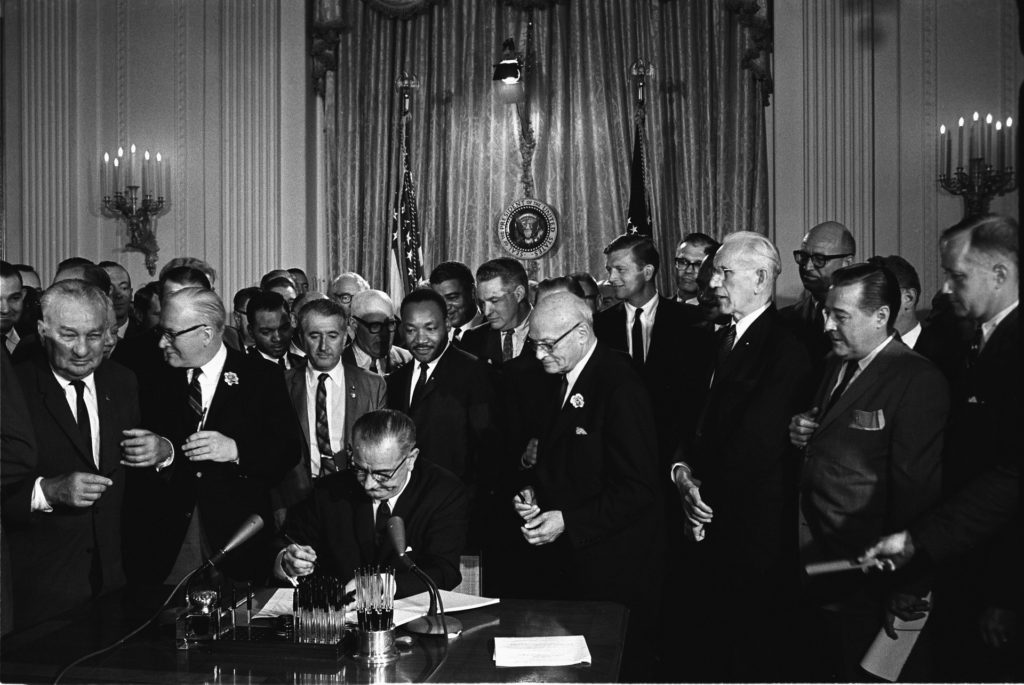
Voting Rights Today
Dr. Martin Luther king Jr. played a pivotal role in securing voting rights for all Americans. The ‘Voting Rights Act’ signed into law August 6, 1965 was a landmark piece of federal legislation, meant to prohibit racial discrimination in voting. Fast forward 2016 where voting rights today are still at the forefront of the political debates, as legislative measures by state continue to threaten disenfranchisement in subtle, but damaging ways. The dream for all U.S. citizens continues. Dr. Martin Luther King’s words still ring loudly with truth today, “Injustice anywhere is a threat to justice everywhere”. We all want our country to rise to the level of greatness that supports equality and inclusiveness, and dismiss divisive tactics that bridge us apart. Dr. Martin Luther King Jr. said it best, “We must learn to live together as brothers, or perish as fools”.
Blog Updates January 16, 2017. Original Blog Post January 18, 2016 by Tonya R
Threat to Voting Rights Act
According to ‘Brennon Center for Justice’, 2016 was the first Presidential Election in 50 years without the full protections of the Voting Rights Act (VRA). The threat to the law today, Section 5 Preclearance. So what was the impact?
Brennan Center for Justice Excerpt
Many new restrictive voting laws went into effect after the Supreme Court gutted Section 5 of the Voting Rights Act in Shelby County v. Holder in 2013. Under Section 5, states and localities with a history of racial discrimination in voting had to seek federal “preclearance,” or approval, from either the Department of Justice or a federal court before implementing any changes to their voting laws and procedures. In the Shelby County decision, the Supreme Court eviscerated that portion of the law, giving states with a history of discrimination free rein to change their voting laws without prior approval.
Of the 14 states with new restrictive voting laws in effect for the first time in a presidential election this year, six were previously covered by Section 5 of the Voting Rights Act. Five of these states — Alabama, Mississippi, South Carolina*, Texas†, and Virginia — have new voter ID laws in place.
The History | Federal Voting Rights Laws
ExpressYourselfBlog’s recommended article by Erin M. Kerrinson, Criminology, Law, and Society: The Color Of Suffrage: Voter Disenfranchisement, Power Threat Hypotheses and Modern Democracy
Recent evidence of discriminatory voting practices hidden in laws in the state of North Carolina:
Fourth Circuit ruled NC’s law targeted “African Americans w/almost surgical precision”. https://t.co/myQrSunbpj … #VoterID #VoteAllElections
— ExpressYourselfBlog (@eybvote) August 1, 2016
Fed Court orders NC to redraw 28 House & Senate districts ruled unconstitutional & hold elections Fall 2017 https://t.co/WTG5tQ4cCx #ncpol
— ExpressYourselfBlog (@eybvote) November 30, 2016
US high court refuses to reinstate North Carolina voter ID https://t.co/fqUBAtX90g #VotingRights #VoteAllElections #ncpol
— ExpressYourselfBlog (@eybvote) August 31, 2016
ExpressYourselfBlog, Creative Commentary
Source: Restrictive Voting Stats, Brennan Center for Justice

